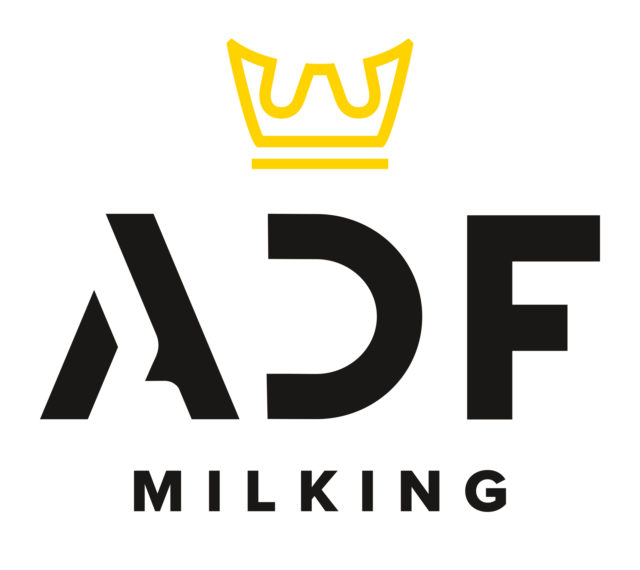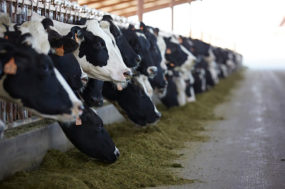We've all been to the farm meetings where the speakers talk about business and “keeping the emotion” out of business by using data to make concrete decisions. I don’t debate this approach for grain marketing, but I highly doubt eschewing emotions on the farm creates clarity of expectations or happy outcomes.
Recently, I met Carolyn Stern, author of Emotionally Strong Leader: An Inside Out Journey To Transformational Leadership. I’m wired for positivity and life-long learning, so I resonate with many of Stern’s insights and wondered what would happen to the farm family dynamic if everyone really cared about working on their internal world.
Stern uses a self-coaching approach, which strong-willed, independent farmer entrepreneurs would love.
1. Connect with yourself and take a hard look in the mirror
We all need lots of self-compassion and a no-judgment zone to be able to accept where we are today. Health issues have a brash way of causing people to reconsider what is truly important in life. Would you be able to sit with your thoughts and feelings long enough to consider how you are aging and managing in place on your farm? “Understanding your inner self will help you lead more consciously and purposefully,” Stern advises. This revelation came to a family meeting when the dad was ready to share the story of the pain and sacrifice of his parents in the tough times of getting the farm started. His fear of failure was a source of concern, which only came to light through his story at the family meeting.
2. Consult with others
Many farmers have few friends, others have lots. I would start with a heart-to-heart conversation with your spouse. Tears flow when the vision of the parent is not aligned for the future chapter of being 70-something on the farm. Are you courageous enough to ask others how they perceive you? Compare their observations to how you saw yourself in your reflection time. Pay attention to what your spouse needs. Being emotionally present for your spouse will protect the health of your marriage.
3. What kind of emotionally strong leader do you want to be?
This great question comes from Stern’s process, but I am afraid many farmers don’t care what others think. They are used to being large and in charge. They may not care to consider the opinions or voices of others on the farm team. If your parents are not willing to consider therapy, counseling or coaching to discover new ways of communicating and resolving conflict on the farm, perhaps that clarity will relieve you of unworkable expectations to seek new options that fit your goals. You can show up as the best version of yourself and model the kind of behaviour and culture you want to create in your management role.
4. Consider your possibilities and barriers
Poor communication is often cited as a barrier. Lack of good communication seems to be a common complaint among young farmers trying to get parents to talk about the future of the farm and the family. Brené Brown, social researcher and Texas-based podcaster, often asks people to question the stories they are telling themselves. I believe everyone can learn a new language to share feelings more clearly and ask for what they need.
5. Make an action plan
A couple I coached was elated to share what they learned about healthy boundaries from their counselor. Their intention was to protect the emotional health of their family and model to the parents the good behaviours they wanted to see grow. We often say, “Counseling is about recovery, coaching is about discovery.” Search the National Farmers Mental Health Alliance website to find ag-informed therapists. If your parents are on the brink of divorce because their future visions for stepping away from the main roles of the farm are at odds, perhaps a “redemptive separation” is the action plan. Divorce is not the goal, healing emotions is. You need accountability partners, dates and deadlines to work at better communication and emotional awareness in “bite-size chunks,” as Stern suggests.
6. Commit to building your emotional support group and to your growth as an emotionally strong leader
Many farm families get in the habit of working in isolation and neglect their connection to the community. We need to be purposeful in reaching out to stay motivated to keep growing and transforming our behaviours. Stern has advice for this too, “Establish accountability to ensure you are focused on your journey to emotional strength.”
Stern’s facial icons listed in her book are a good reminder to use a larger vocabulary for our feelings. Her emotion check-in list includes positive, happy, optimistic, inspired, empathetic, excited, confident, proud, content, relieved, hopeful, calm, strong and passionate. The negative emotions common to blowups on farms might include intimidated, offended, frustrated, discouraged, afraid, resentful, confused, overwhelmed and disappointed.
Read that last paragraph of the emotion check-in again. Notice how the positive words make you feel, and think of when you last felt that emotion.
“I love you, my child, and you’ve grown to be a great asset to our farm, and I am proud of you and all you have accomplished. I’m optimistic for the future of this business and the legacy we are creating together.” Many young farmers would love to hear this spoken aloud, and the reverse is true for farm parents. Respect, positivity and appreciation go a long way to build emotional health.
Do you have a clear picture of who you are and how you lead on your farm and in your family?
Awareness is a good first step. Read Stern’s book or listen to the audiobook. You’ll enjoy her tips and tools to gain emotional strength.
References omitted but are available upon request by sending an email to the editor.







